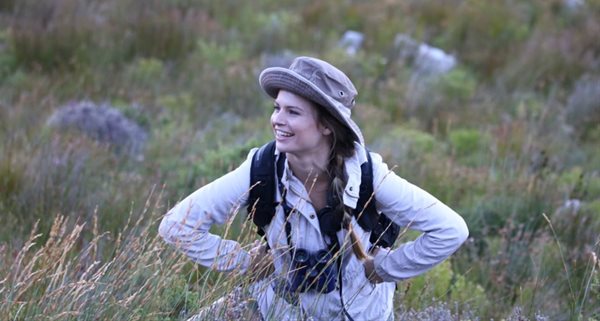
Top stories




Marketing & MediaAds are coming to AI. Does that really have to be such a bad thing?
Ilayaraja Subramanian 21 hours


More news
















The research, conducted by wildlife lover Lindsay Mandy who recently obtained her master’s degree in political science at Stellenbosch University, focused on lions and vultures as their conservation is “riddled with political problems and time is running out for us to save them”.
“Our values determine how we interact with endangered species and our beliefs contradict and compete with others. Our values also determine whether we consume or preserve endangered species, whether we support extractive or recreational economic activities involving them, whether we value the animal if it’s dead or if it’s alive and whether we care at all,” Mandy says.
In her research, Mandy shows that protecting endangered wildlife has become a complex social, economic and political natural resource conflict that we need to deal with by also focusing on the competition between contradictory human values which are inherently ‘wicked’ by design. This is the so-called ‘Wicked Problem Theory’.
“Wicked problems permeate political boundaries, institutions, business sectors, among others. This perhaps explains why poachers are able to stay a step ahead of law enforcement, why growing responsibility is placed on NGOs and why there’s a move toward grassroots anti-poaching efforts,” Mandy says.
She says we need more than just scientific analysis to deal with the complexities of social, traditional, religious, moral and sentimental attachments to the exploitation of vultures and lions.
Mandy continues: “We need to realise that various interest groups operating in the region are driven by political, financial, moral and ecological incentives and attempt to influence public action and policy in accordance with their goals. They cause problems by politicising conservation, by taking advantage of threatened species for publicity and financial gain, and encouraging polarised public perceptions.”
Mandy adds that vague legal parameters allow criminals to manipulate animal protection laws and encourage political disputes over the position of protected species in the law.
She says conservation is more likely to work when communities benefit economically from animals being alive, the symbolic value of the species promotes life and when all stakeholders feel equally involved.
Although it’s not easy to solve problems related to competing human values and conversation, Mandy says this shouldn’t stop us from trying to gain a better understanding of why people choose to kill wildlife, especially endangered species and disregard the law.
"It would also be important to look into how conservation and social development can happen symbiotically,” Mandy concludes.